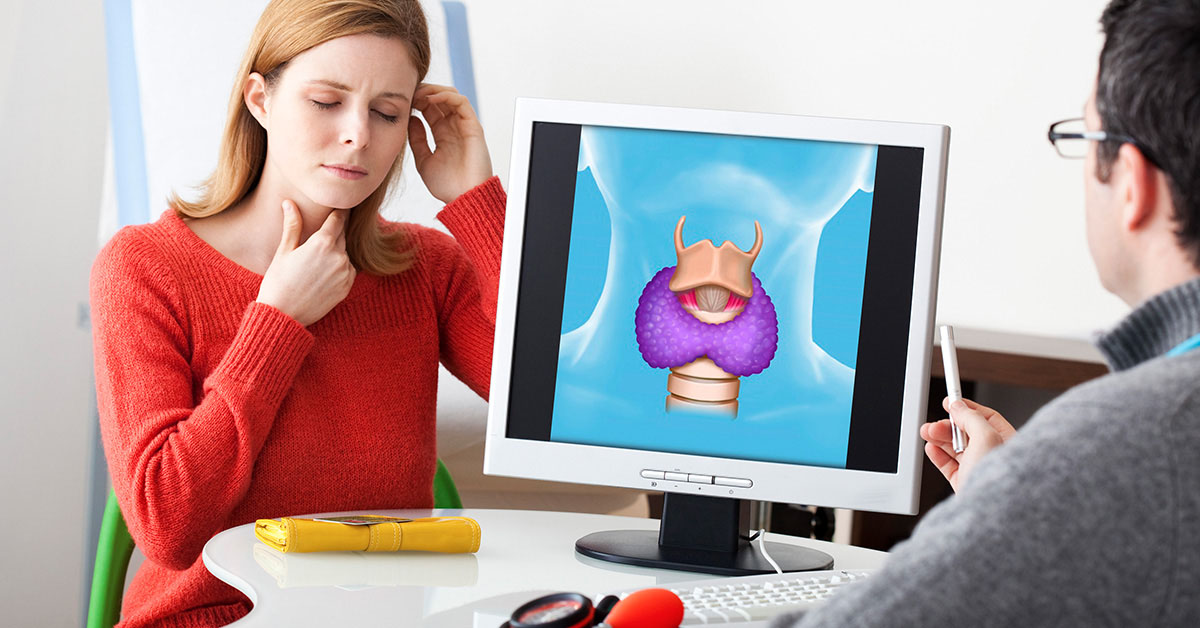
What are Thyroid Nodules?
Your thyroid is a hormone producing gland that is located on your throat just below your Adam's apple. The hormones produced by the thyroid help to regulate your body's metabolism, heart rate, blood pressure, growth, and body temperature.
A thyroid nodule is a fluid-filled sac or solid lump that forms on the thyroid gland. Most thyroid nodules aren't cancerous or even a serious cause for concern. They will often only be discovered during a yearly physical exam. However, some thyroid nodules do become enlarged enough that they become visibly apparent.
Causes of Thyroid Nodules
Causes and factors that increase your risk of developing thyroid nodules can include the following:
- Deficiency in dietary iodine
- Unexplained enlargement of the thyroid's tissue (thyroid adenoma)
- Development of a cyst on the thyroid
- Thyroid inflammation
- Thyroid cancer
- Development of a goiter
- Exposure to radiation (x-rays, radiation treatments, environmental radiation)
- Pre-existing conditions, such as Hashimoto's disease or thyroiditis
- Having a family history of developing thyroid nodules
- If you're age 50 or older
Symptoms and Diagnosis of Thyroid Nodules
Symptoms that are commonly associated with thyroid nodules can include:
- Swollen or enlarged thyroid gland
- Breathing or swallowing difficulties
- Recurrent cough
- A hoarse voice
- Pain in the neck area, usually near the base where the thyroid is located
Sometimes thyroid nodules are accompanied by an overproduction of hormones by your thyroid, also known as hyperthyroidism. If this happens, your symptoms may also include:
- An irregular or rapid heart rate.
- High blood pressure
- Increased appetite
- Unexplained weight loss
- Frequent bowel movements
- Excessive sweating
- Hand tremors
Conversely, you could also be affected by an underproduction of thyroid hormones, referred to as hypothyroidism. Symptoms of hypothyroidism can include:
- Weight gain
- Fatigue
- Difficulty with bowel movements, constipation
- Dry skin, brittle hair and nails
Thyroid nodules can be diagnosed using certain examinations such as an ultrasound, thyroid scan, or blood tests to determine hormone levels.
Treatments for Thyroid Nodules
Assuming that your thyroid nodule isn't cancerous, treatment options often include the following:
- Observing and testing of the thyroid over a couple of months to see if symptoms cease.
- Thyroid hormone suppression therapy which involves giving you additional hormones that the thyroid normally produces in the hope that your body will produce less of the hormone that encourages thyroid growth.
- Surgical procedure to remove the nodules.



